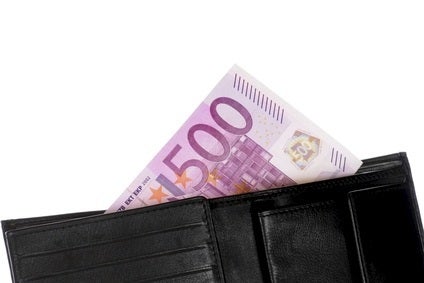After months of shadow boxing, PSA Peugeot-Citroen finally confirmed today (19 February) what the market had widely anticipated, namely a massive three-way cash injection that will see EUR3bn (US$4.1bn) pumped into the automaker.
In a raft of announcements – which broke its Paris purdah – PSA also unveiled its 2013 results, better than some had expected with an operating loss of EUR177m, twinned with the formal start date of former Renault COO, Carlos Tavares, as president, for next month.
The provision of such a vast sum will surely raise some eyebrows, not the least of which, will surely be those in Brussels, whose Eurocrats have looked at PSA with some interest, notably in last year’s approval of a French State guarantee of EUR7bn, covering bond issues issued by Banque PSA Finance until December, 2016.
The commission cited PSA’s updated restructuring plan, which it said would help the group return to viability, while limiting the distortions of competition caused by state aid.
Well, it will be certainly be interesting to hear what the other French automotive Carlos – Ghosn at the helm of Renault – has to say about the EUR800m so generously emanating from Paris’ coffers, whether or not he views the sum as “state aid” and whether it distorts competition.
French prime minister, Jean-Marc Ayrault, clearly has no such qualms however about helping – is the word ‘propping up?’ – high-profile domestic industries in the teeth of some pretty grim opinion polls surrounding his boss’ handling of the economy.
Indeed, he went so far this morning as to insist the EUR800m injection was an act of “state responsibility,” that forms part of a deliberate industrial landscape and one firmly shaped by Paris.
“This is a major strategic operation for the PSA Group, with which the state is associating itself for the long term,” said Ayrault. “It’s also an act of state responsibility in relation to one of the main industries in the country.
“It is to the benefit of activity and jobs in France.”
It’s hard to see that sort of language being particularly well received outside France – what’s one man’s meat is another man’s poison – and some may view the crutch being thrown to PSA as detrimental to their own domestic requests for help.
Does this move in turn trigger an arms race of other states intervening – particularly in the hard-pressed southern Mediterranean countries – or maybe Paris is gambling the interdependability of global auto operations provides enough trickle down benefits from PSA that they will decline to rock the boat.
However, this bout of good old-fashioned ‘statery’ will surely make France’s powerful unions – without whom any industrial partnership seems virtually impossible – purr with satisfaction.
They’ve maintained an unusual silence so far, but it’s a racing certainty they will be raising a glass of something to the socialist government today, whose direct intervention, at the request of PSA it would seem from Ayrault’s comments, has led to the EUR800m warchest.
The next French presidential and legislative elections aren’t due until 2017, so there are a good three years until both Francois Hollande and Ayrault go the polls, but the domestic mood is pretty ugly at the moment and perhaps the PSA move is a sign of further activity.
As if to bolster France’s determination to help its auto sector, Ayrault’s office also noted: “The state confirms…its capacity to act as investor, shareholder and partner to accompany the development of major French business.”
If that isn’t a justification, a definition of state interventionism at its starkest, I don’t know what is, but it may be a model that sits well domestically.
I’ve put a call into France’s main conservative opposition – the UMP – and have yet to hear back but it’s possible they may also back a bit of centralised ‘direction,’ albeit in a more understated manner.
And what if, with its seats on the board, Paris insists on getting its own way, how will the Chinese react?
There’s very little from the PM about the tri-partite governance of the new arrangement and how the Chinese company will exert influence, but Ayrault’s Ministerial colleagues, Pierre Moscovici at Finance and Arnaud Montebourg at Economic Redevelopment, at least acted swiftly to put some meat on the political bones.
The deal will see the French state, Dongfeng and the Peugeot family group each own around 14% of PSA’s share capital, with each of the three to be represented by two members in a Supervisory Board.
Questions have been raised as to the independence of PSA with greater Chinese involvement but the French government is stressing the three main shareholders will not act together.
Each of them will be represented by two members on the supervisory board which will have no more than 14 participants and will be chaired independently.
Carlos Tavares as new PSA president will be overseeing just how the cash will be spent, but he will have the backing of the French state as ‘shareholder.’
Moscovici apparently hinted on French radio today, the move would not see more factory closures in France, but can he really hold back the tide, Canute-like, if market conditions change?
Ayrault’s first words in his reaction today to Paris opening its coffers to PSA were “The state.”
They’re not old-fashioned words in France.







